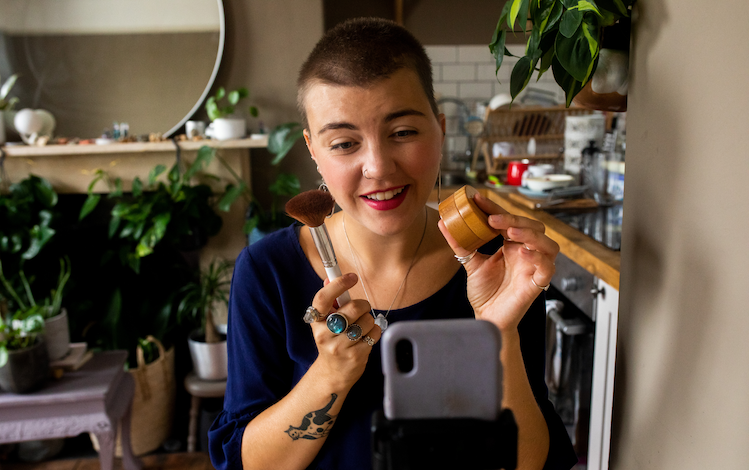

Influencer360: It’s All About Aligning Values
It’s strange to think we used to attend events in person. Frantically zipping from one speaker to the next, digesting as much information as we can. No longer darting into a room but instead hopping on a virtual call, I recently had this thought when I attended PRWeek’s Influencer360 event. And although I missed being able to connect with people in the industry, the quality of content was still high.
Right from the start of Andrew Canter’s — Global CEO at the Branded Content Marketing Association (BCMA) — opening words, this year’s event jumped straight into a day focused on defining the future of influencer marketing in communications and homed in on the invaluable insights from global brands, influencers, platforms and industry bodies. I wanted to share why the word authenticity is more than just a buzzword and the three main takeaways to help your company get the most out of its influencer relationships in communications.
Word of the day: authenticity
Although sessions covered different topics within influencer marketing, each one came back to one focal point — and yes, I may have mentioned it the section-head, #spoileralert — authenticity.
But what does authenticity really mean in this context? Ian Randolph, Head of Product and ROI at Tailify, answered this in his session on behavioural science in influencer marketing. An authentic relationship between a brand and influencer — and even between an influencer and their audience — is always based on shared values and purpose. Trying to force a relationship when your values don’t align can make content and what you’re promoting seem ingenuine, which may mean your campaign doesn’t hit the goals you’ve set.
In our recent purpose research, Rethinking the Purpose and Meaning of Leadership with YouGov, 89% of respondents say customer demands that brands have a positive impact on society will continue to grow. Audiences are now more wary of brands, tech giants and online personalities. The increase in time spent interacting with content (videos, streams, reels, podcasts, etc.) means they’re savvy to what is being promoted — when this becomes too scripted then users aren’t as engaged or trusting. This highlights why authenticity is so important to the continued growth of the influencer landscape and should always be front of mind.
Although authenticity reigned supreme over all talking points throughout Influencer360, there were a myriad of learnings.
1. There is a need to professionalize our approach to influencer marketing and compliance
Industry bodies such as the BCMA and ASA are already helping put new sanctions in place, creating blueprints and best practice guides when it comes to influencer activity, so that those within the influencer ecosystem are aware of the rules and are compliant.
For a marketing tactic built on trust and authenticity, having rules in place so that audiences know if a piece of content is an ad or paid for ensures that influencers and brands maintain a level of honesty and are promoting genuine content.
2. Bigger doesn’t always mean better
Depending on your campaign goals, the influencer with millions of followers may not necessarily be the right one to collaborate with. Throughout the event, speakers looked at macro- vs. micro-influencers and how both can add value to your brand. Although influencers with larger followings can increase your reach, micro-influencers can result in better engagement and conversion because they’re arguably more connected with their audience.
Brands that clearly outline what they want to gain from an influencer relationship will be better equipped to choose the influencers that best suit their activity.
3. Be in it for the long haul
Building genuine relationships between brands and influencers is all about putting the time in to ensure that both parties are aligned on engaging content and activity.
Finding the right influencers can be a challenge. Put the time in to identify whether your brand values align with that of your influencers and understand what they want when collaborating. By continuing to build up your relationship with an influencer and working with them, you create brand ambassadors that understand and believe in your product, service or content — and can promote that to their audience in a way that’s authentic and genuine. Your relationship with an influencer shouldn’t end when your campaign does. Always look for ways to collaborate with them and see how they can add value to your brand and vice versa.
I can’t wait for the day when we can all safely collaborate and listen to these conversations in person. But the message from the Influencer360 event remains true, be it virtual or not: Your brand and company’s actions must align with your values. No matter what content you create, authenticity should remain front and centre and your audience’s desire will only grow stronger the more technology advances. How are you choosing to authentically show up with the influencers you work with?
Learn more on how WE can use insights and analytics to help your work effectively connect with the right audience. To see how WE has partnered with influencers recently, explore the case study of our work with Diageo on the Power of Choice campaign, saving lives on South Africa's roads.

